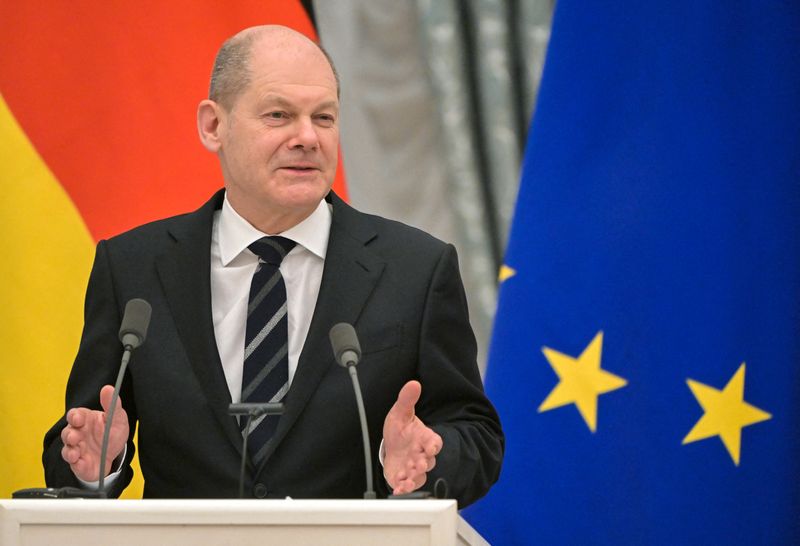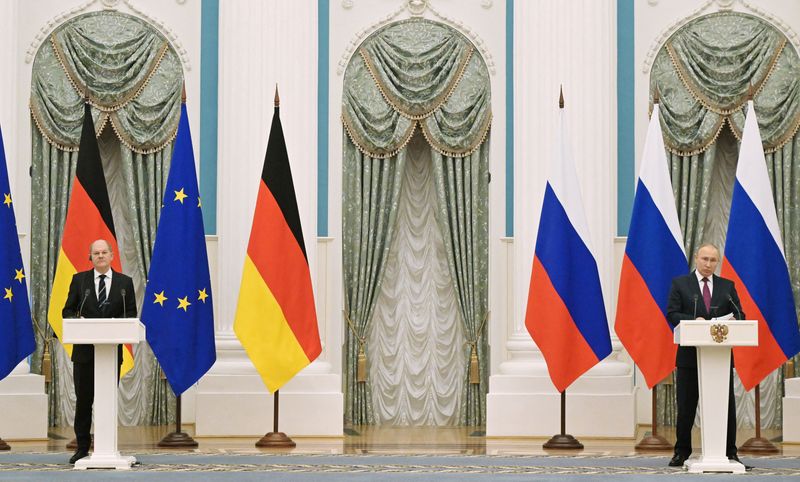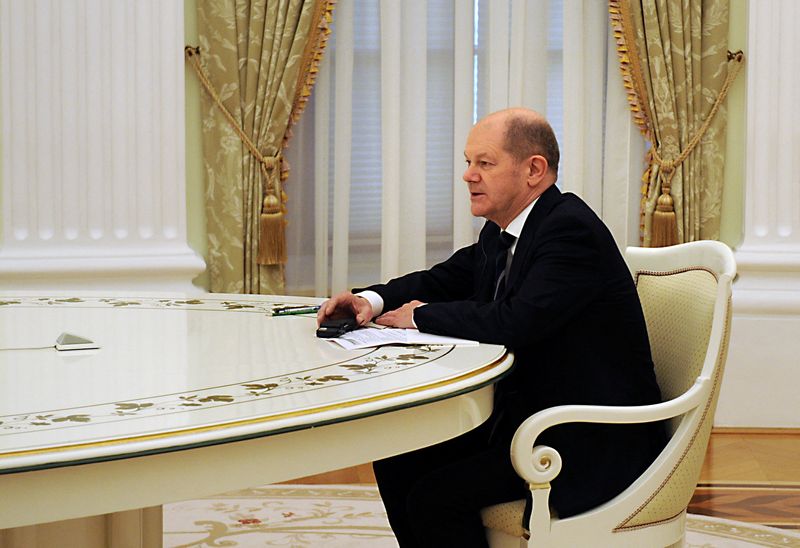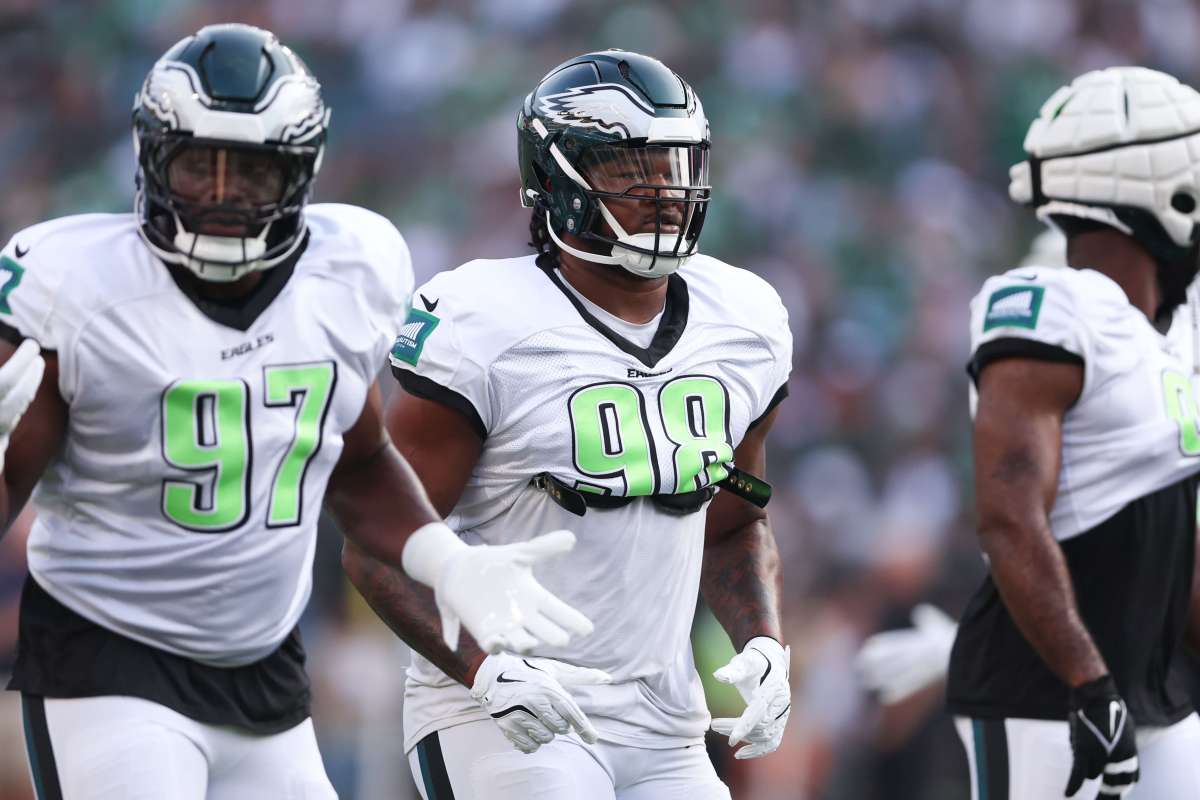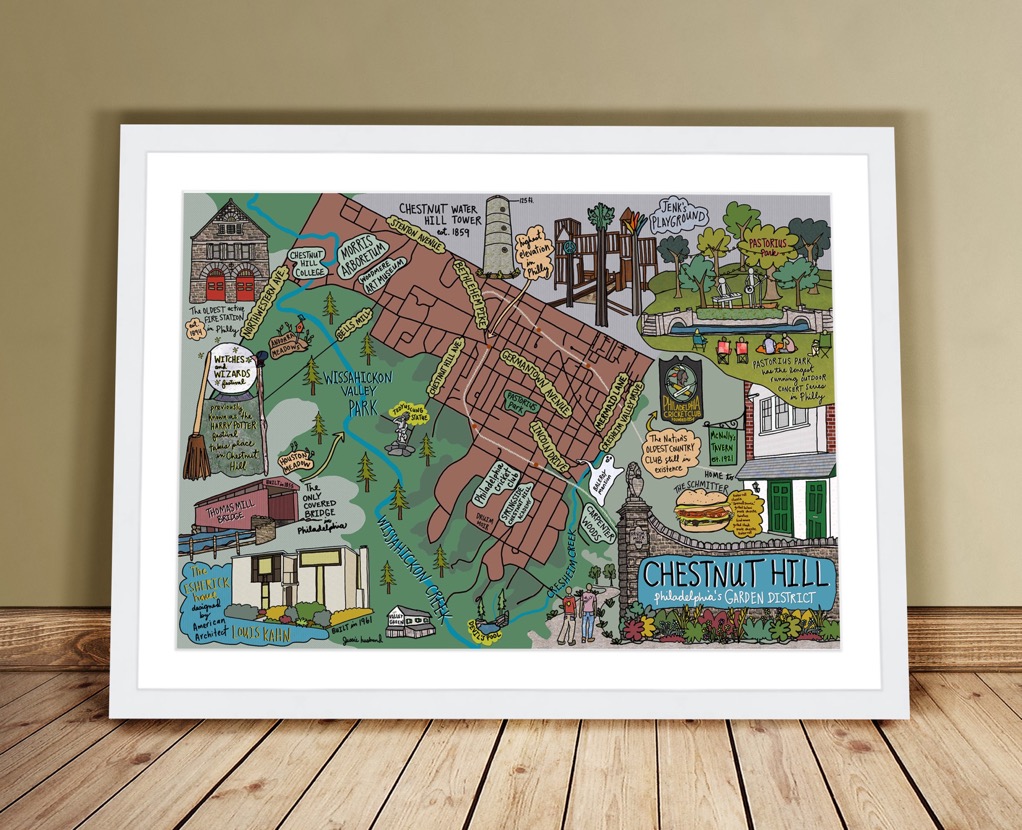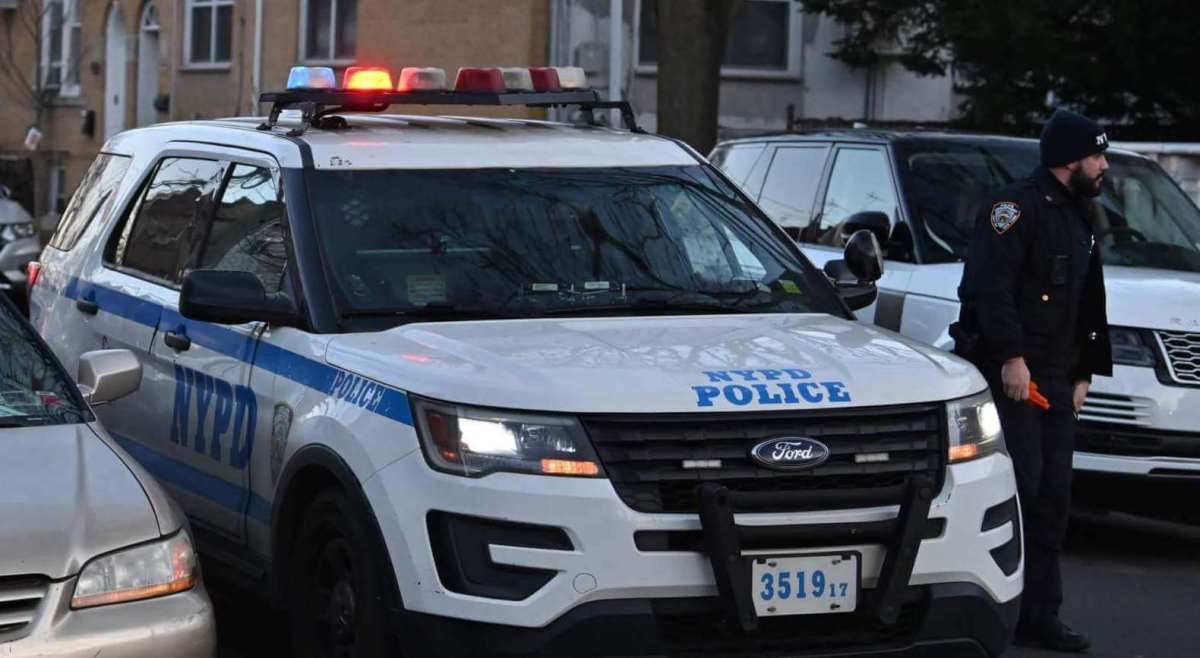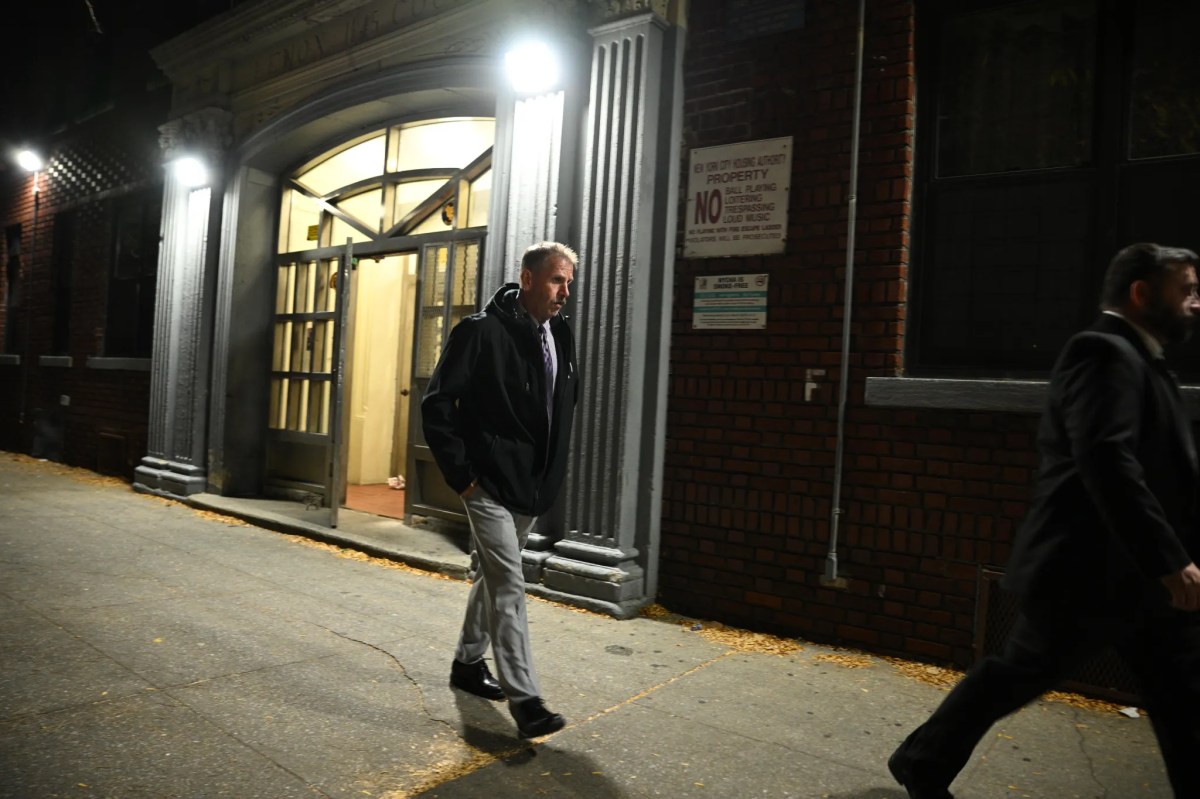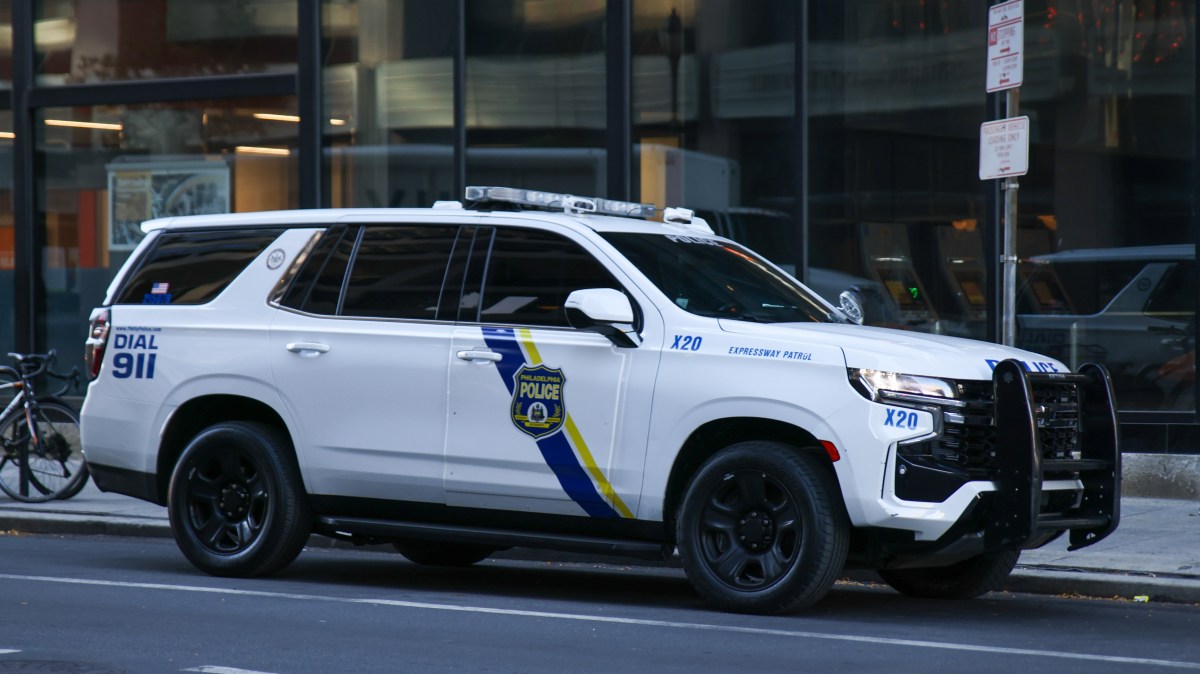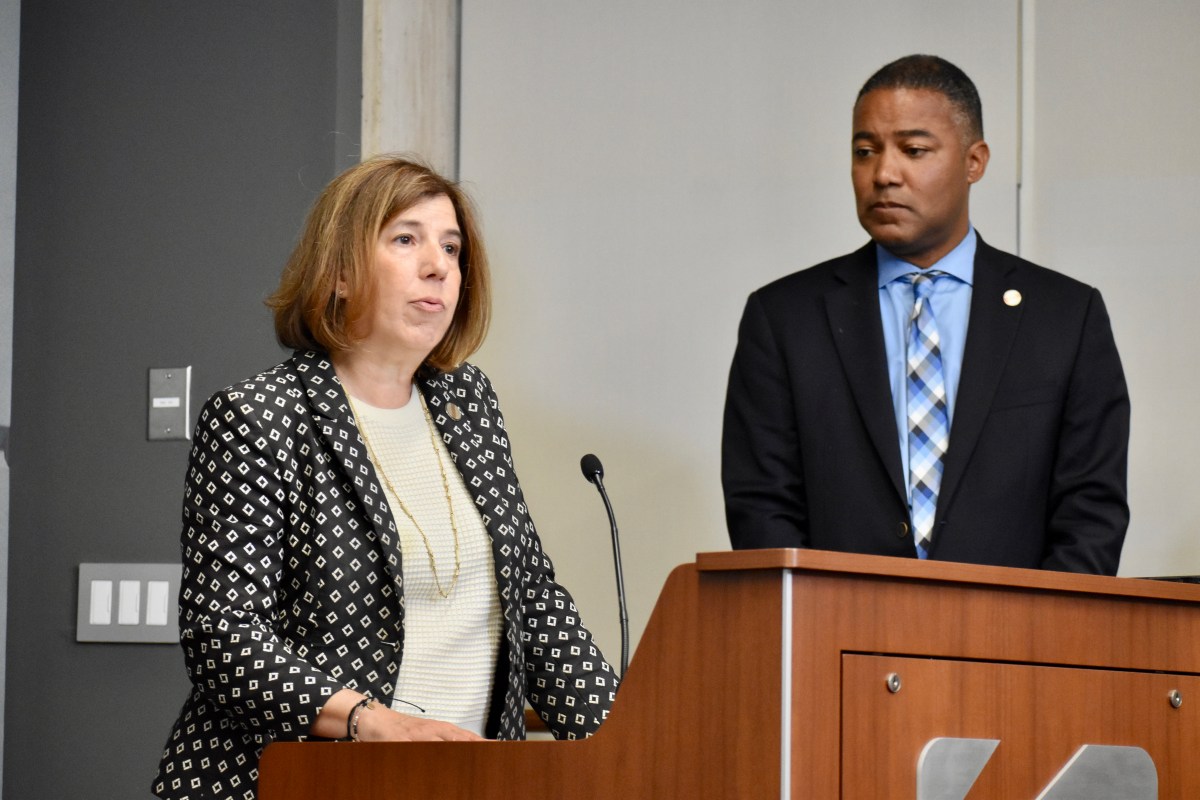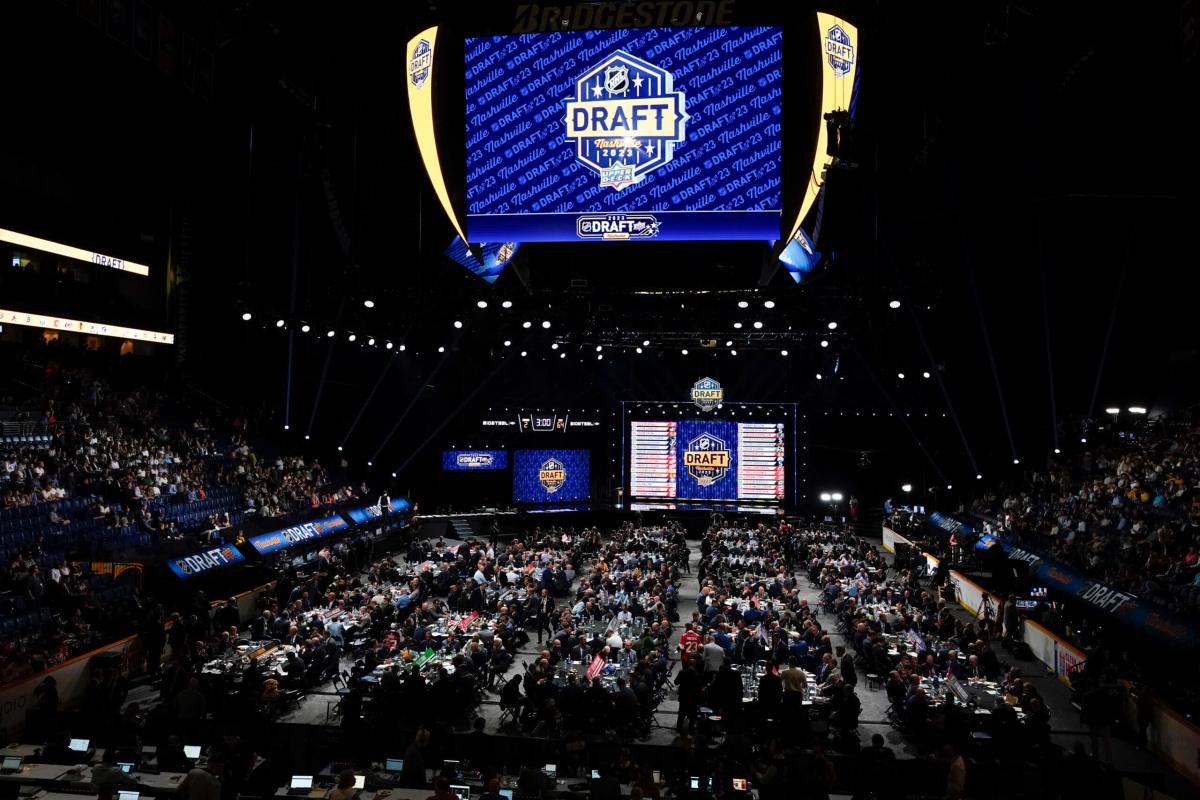MOSCOW (Reuters) – German Chancellor Olaf Scholz said on Tuesday he saw scope for more diplomacy to avert a war between Russia and Ukraine after four hours of talks with President Vladimir Putin, making clear he refused to view the situation as hopeless.
Scholz’s one-day trip following a visit to Kyiv on Monday is part of a Western effort to try to prevent a possible attack as more than 100,000 Russian troops mass on Ukraine’s borders.
“The diplomatic possibilities are far from being exhausted,” Scholz said at a joint news conference with Putin.
Striking a more positive note than some other Western leaders, Scholz said it was a good sign that some Russian troops were returning to base after excercises near Ukraine, but added that he wanted more to follow.
“It should be possible to find a solution. No matter how difficult and serious the situation seems to be, I refuse to say it is hopeless,” he said.
Long-term security in Europe could only be achieved with Russia, he added.
“To my generation, war in Europe has become unimaginable. We must ensure it stays that way,” said Scholz, who took office in December. “It is our responsibility as state and government leaders to prevent military escalation in Europe.”
Scholz, who has drawn criticism at home and abroad for mixed signals on Ukraine and for not speaking out against Russia, also said while NATO and the European Union did not agree with Russia’s demands, there were some points worth discussing.
Once again, the chancellor stopped short of saying he would end the Nord Stream 2 gas pipeline in the event of an invasion, merely saying there would be consequences.
However, at the news conference, Scholz did voice concerns about civil rights issues, including the closure of the human rights group, Memorial, in December.
The two also sparred on NATO.
Putin criticised NATO, saying it had launched a war in Europe by bombing the former Yugoslavia in 1999. Scholz hit back, saying this was done to prevent genocide, a reference to the persecution of ethnic Albanians in Kosovo.
Putin countered that Russia considered the treatment of ethnic Russians in the Donbass region of eastern Ukraine to be genocide.
(Additional reporting by Mark Trevelyan in Moscow, Writing by Madeline Chambers, Editing by Angus MacSwan)

